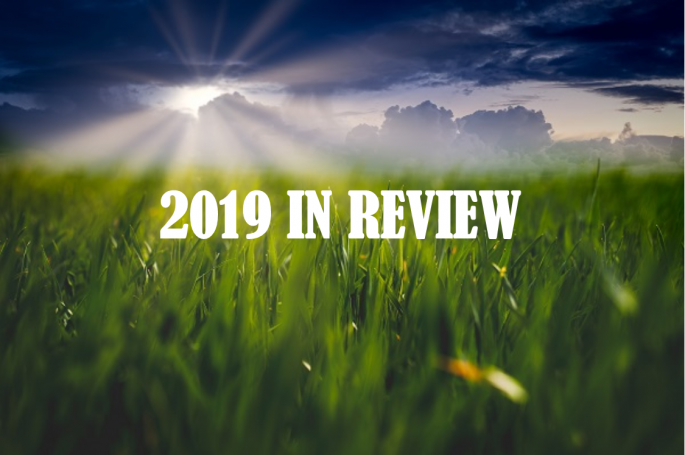2019 In Review

The goal of the Agricultural Information Management Standards Portal (AIMS) within the Food and Agricultural Organization (FAO) of the United Nations is to raise awareness and promote knowledge about information management strategies, good practices, technologies and capacity development activities on information and data access services, particularly surrounding AGORA, AGROVOC and AGRIS. Throughout 2019, the AIMS team reached many accomplishments with AGRIS, AGROVOC, AGORA and Research4Life.
AGRIS
Currently, AGRIS has more than 450 data providers from up to 145 countries, with more than 10 million visits per year. In 2019, 110 data providers have provided 1,300,000 records, with a total of nearly 11,000,000 records. A new AGRIS Interface, which includes new functionalities with personal pages for data providers and enhanced search capabilities, was launched in December 2019, additional to the new Open Data Set Initiative, which provides a great opportunity to increase analysis of agricultural performance through the use of open data, and consequently help inform agricultural investment, innovation and policy to drive changes toward increasing sustainability in the agricultural sector, which matches the goal of living in a world with zero hunger.
Throughout 2019, The AIMS team within FAO hosted a number of events and webinars to continue to improve the agricultural landscape by increasing the knowledge of making data on agricultural globally available.
- Benefits of strengthening AGRIS in Europe and Central Asia highlighted in Moscow - A regional workshop on “Strengthening the Accessibility and Visibility of Agricultural and Land Data through the Use of Semantics - AGRIS in Europe and Central Asia” was held by FAO in collaboration with the LandPortal Foundation in Moscow, 27-28 June 2019, hosted by the Central Scientific Agricultural Library (CSAL). Learn more here.
AGROVOC
AIMS has supported interoperability among resources and repositories through AGROVOC, which currently has more than 28 million accesses per year. AGROVOC has 36,738 concepts, which grew from 36,013 one year ago, with 740,000 terms in now up to 35 languages, which includes five new languages this year. Many AGROVOC concepts have been aligned with other concepts in over eighteen multilingual knowledge organization systems related to agriculture. AGROVOC is now released monthly, and is edited by a community of 22 experts from more than 18 organizations.
Throughout 2019, the AIMS team within FAO hosted a number of events and webinars in support of the growth of AGROVOC.
- AGROVOC Editors from many countries convene at KTBL in Darmstadt - As a follow-up to 2018's successful AGROVOC Editors' meeting in Utrecht, thirty-three editors and stakeholders from 16 countries and 13 language areas met on June 24-25 2019 at the German Association for Technology and Structures in Agriculture (KTBL) in Darmstadt, Germany. Learn more here.
![]()
AGORA/Research4Life
Work has continued in the development of capacities for institutions in member states to access and use the AGORA programme with more than 4,000 participants attending face-to-face and online training activities, which resulted in 300 new organizations registered to Research4Life in 2019. The current monetary value of the content available on the online platform amounts to an average of $20 million USD per registered organization. AGORA has increased its collection 25% in 2019, with a total of 105,000 online resources.
AIMS has delivered a series of workshops together with online training events conducted to ensure the greater uptake of access to scientific information resources, research and open data and digital platforms in agriculture and related sciences, with more than 10,000 participants trained at national, regional and global level.
- First Research4Life MOOC Hosted - Research4Life was thrilled launch the first MOOC (Massive Open Online Course) that helped to equip existing and future users of the Research4Life programs (Hinari, AGORA, OARE, ARDI and GOALI) with the knowledge and skills required to access and use the information efficiently. Learn more here.
Capacity Development
FAO has established a series of partnerships and programmes to make information about agriculture and nutrition available, accessible and usable. These include initiatives in the higher education sector, a critical frontline in improving the development in lower income countries, and access to agricultural research through online platforms to facilitate innovation transfer and to assure the generation of new ideas, products and services.
Throughout 2019, the AIMS team within FAO hosted and supported a number of events to support capacity development. Some of the most important events included:
- “AIMS Team leads the CFS46 Side Event: Information 4 Innovation in Food Security and Agriculture”
- National Workshop on Access to Scientific Information Resources in Agriculture (ASIRA) Workshop was held in Ha noi, Viet Nam”
- Webinar: “Reflection on Farmer Profiling, Data Management and Services for Farmers”
- “Africa Geospatial Data and Internet Conference 2019”
Some Figures About the AIMS.FAO.ORG Portal
- The portal had 320,000 visits per page with a total of 166,464 sessions
- The portal witnessed more than 118,000 new users
- Up to 144 news items including the AIMS newsletter and blog posts abided by a number of cross-cutting issues focused on information and data provision, management and sharing were published with more than 85,000 page views on blog posts

